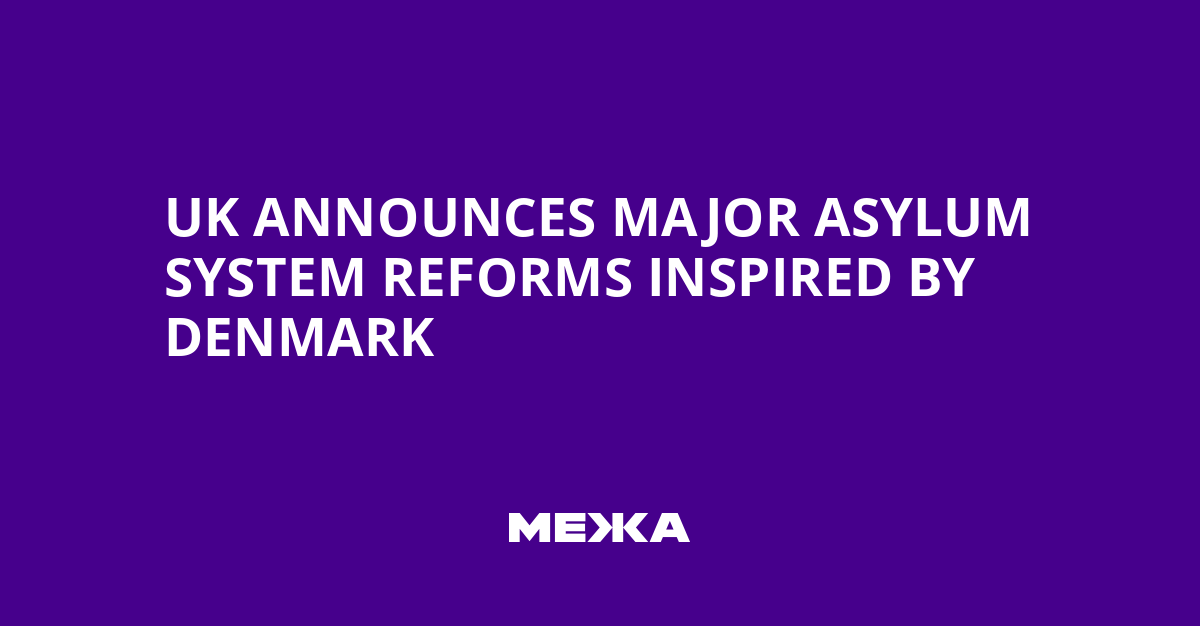Britain is preparing for the biggest asylum-system reform in years, a move that will radically change immigration rules in response to rising anti-immigrant sentiment and pressure from right-wing parties.
The innovation will be fully unveiled by the Labour government this coming Monday; partly borrowed from the Danish approach, where refugees are given limited social protections and stricter requirements.
The party has tightened its immigration policy regarding illegal boat crossings from France, responding to growing support for Reform UK, which advocates for “frozen immigration” and “stop the boats”.
Home Secretary Shabana Mahmood is expected to announce a partial rollback of permanent protection for refugees and a reduction in housing payments as part of a series of reforms aimed at making Britain less attractive to illegal migrants.
“On Monday I will unveil the most sweeping changes to our asylum system in modern times,” Mahmood said in a video message on the platform.
“We need to reduce the number of people arriving here illegally. We need to remove a greater number of people who have no right to be here. We will always be a country that grants asylum to those fleeing danger, but we must restore order and control.”
– Shabana Mahmood
Key changes and expected consequences
According to Mahmood, the new framework will require applicants to wait 20 years before consideration for permanent settlement, introduce a temporary status with the possibility of review every 30 months, and those arriving from countries with a recognized safe status will be returned. Those arriving legally will have a path to permanent settlement within ten years, which is significantly longer than the current timeframe.
The idea is borrowed from the Danish model, where refugees typically receive temporary residence permits with subsequent review, and the number of new applications declines. Officials say such a policy will help reduce pressure on public services and local communities’ resource costs.
According to the government, the new system meets contemporary European standards in some aspects and even exceeds them in certain areas.
Under the previous scheme, first introduced by the previous government, refugees could apply for permanent settlement after five years, but the new 20-year path will be the longest in Europe, ahead of Denmark, where the process lasts about eight years.
Such steps have drawn criticism from rights groups: they argue that the new norms create a longer, more indefinite status for asylum seekers and weaken their protections.
Earlier this year, Britain’s delegation discussed the Danish approach as a possible path for adaptation, and migrants are often given temporary permits with subsequent review of their applications.
“Over the last four years, 400,000 people have applied for asylum here. More than 100,000 live on and receive support at taxpayers’ expense, creating significant pressure on local communities.”
– Shabana Mahmood
The British Refugee Council has voiced critical remarks about the new policy, emphasizing the importance of preserving humane protection standards.
“People who have been persecuted, tortured, or witnessed the deaths of loved ones in conflicts do not fall under the definition of ‘asylum seekers’… refugees should not have to compare asylum systems before fleeing for their lives”
– British Refugee Council
“We know why people come to Britain: they already have family here, they speak English to some extent or have strong ties that help them rebuild their lives in safety”
– British Refugee Council
